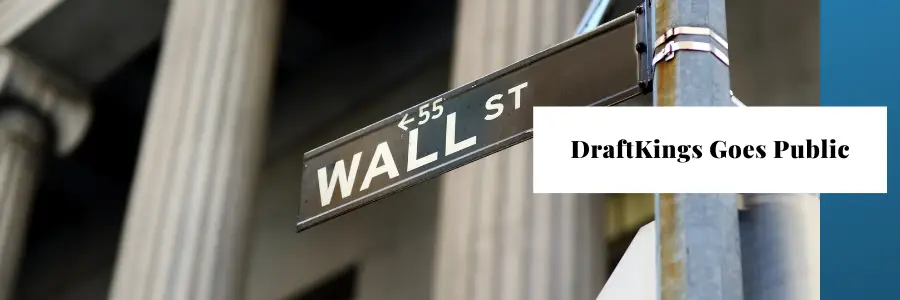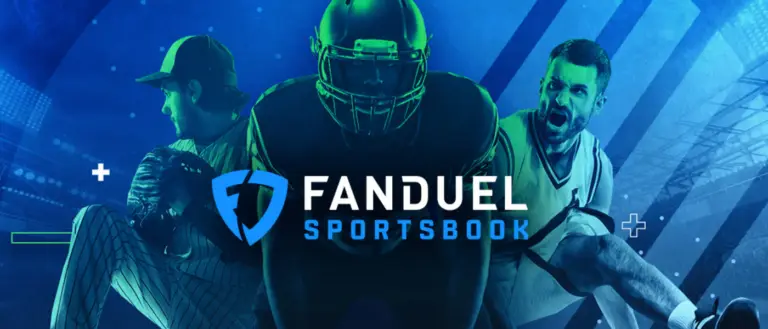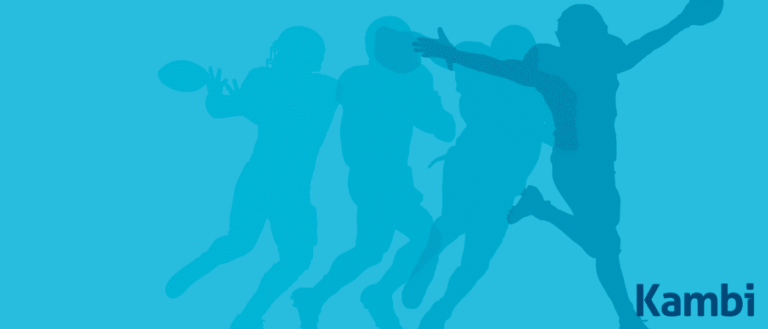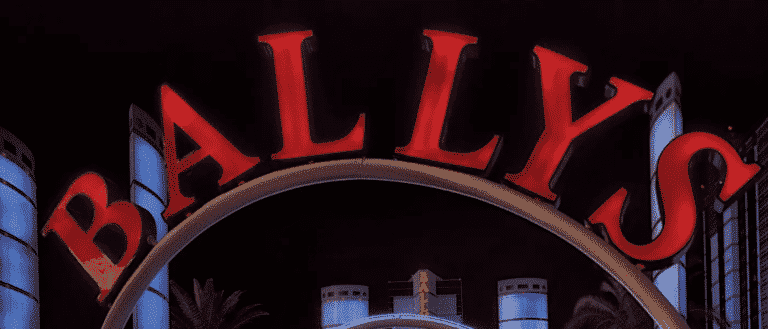DraftKings Public Listing Adds New Chapter to Long Journey

DraftKings, which at different points in its eight years seemed poised to take over American sports and at others fold entirely, reached a new milestone in its circuitous existence when it began trading publicly Friday.
The next eight years will bring further twists, but its listing on the New York Stock Exchange points to the former of the two above scenarios being closer to the truth.
Since bursting onto the scene with a ubiquitous advertising blitz for its flagship daily fantasy sports products, DraftKings has been perceived as a nuisance, an illegal gambling entity and a leader in the fledgling days of legal U.S. sports betting.
Now after a merger with gaming technology provider SBTech – and ticker symbol DKNG – DraftKings seems better equipped than ever to procure a growing portion of the estimated $150 billion American sports gambling industry.
DraftKings History
Starting in 2012 in a spare bedroom, DraftKings founders Jason Robins, Matthew Kalish, and Paul Liberman grew a little-known version of fantasy sports into a publicly traded, multi-million dollar sports gaming entertainment company.
DraftKings took the foundation of fantasy sports, where players “draft” athletes and are awarded points based on their on-field statistical performance, and quickened the action. As their ads stressed, instead of the time requirements of a fantasy team for a full professional football or baseball season, daily fantasy games allowed new lineups every game.
Better yet, players could set lineups pay to enter contests against thousands of other players. The top prizes for the most popular games grew to pay out more than $1 million.
By 2014, DraftKings and rival DFS company FanDuel had struck deals with professional sports leagues, which despite their traditional aversion to gambling, touted this new game types as a form of fantasy sports, even though the companies made their profits from having players risk money in hopes of winning more.
Ahead of the 2015 football season, the two top DFS providers garnered deals with the NFL, far and away the most popular professional sport in America. In the lead up to and throughout that season, the companies inundated sports media, blasting an estimated $31 million worth of adds across 9,000 national television commercials every week. The advertising onslaught assured the companies’ products would be identified by sports fans, but it also drew attention from officials who almost ended their exitance.
Challenges Abound
Sports fans or not, politicians couldn’t ignore DraftKings and FanDuel. The apparently endless barrage of ads compelled many state attorneys general to investigate these games – and to determine if they violated their state’s gambling laws.
From their inception, DFS companies said they were a game of skill, not luck, and therefore not a form of gambling. Some attorneys general disagreed. While some states allowed these games, or allowed them to operate in a legal grey area, others worked to shut them down.
In New York, home to FanDuel, then-Attorney General Eric Schneiderman declared the games illegal in his state. This set off a massive legal challenge that continues in New York and elsewhere to this day. That delineation between luck and skill, and each state’s laws as well as interpretations of said laws, remains unresolved in the two-dozen or so states without any formal daily fantasy regulations.
But the November 2015 ruling from New York, home to the nation’s largest metropolitan area and many of its most recognized media companies, sent a chill through the entire industry. In Nevada, long the nation’s gambling mecca, the games were deemed illegal just two weeks later. DraftKings and FanDuel still don’t operate there or in a handful of other states where the games remain in direct violation of the law.
DraftKings became embroiled in further controversy when it was accused of sharing insider employee secrets and was sued for false advertising. In early 2016, ESPN backed away from its advertising deal with DraftKings, removing the company’s single largest spotlight.
A year after Schneiderman’s ruling, without its same advertising potency and with a tarnished reputation in the minds of those who found the games illegal gambling (or an annoyance to the airwaves), DraftKings sought to merge with its arch-rival. But that was shot down by regulators in June 2017, leaving the two companies separate futures in doubt.
Sports Betting Break
Nearly a year after the Federal Trade Commission announced plans to block the merger, the U.S. Supreme Court threw DraftKings a lifeline.
The court struck down the federal sports betting ban, allowing states other than Nevada to legalize sports betting. By the end of 2018, eight states were taking bets. A year later, that number had nearly doubled.
FanDuel, snapped up by a global gaming giant now known as Flutter Entertainment, saw single-game sports betting as a far more lucrative opportunity than its flagship product. DraftKings did too.
The two DFS companies, having built name recognition through relentless advertising, had a massive head start in the U.S. sports betting race ahead of their European competition, many of which are unfamiliar with the peculiarities of American sports betting habits.
This allowed the two DFS titans to take leading positions in New Jersey and Pennsylvania, the nation’s largest sports betting markets outside Nevada. DraftKings now operates online sportsbooks in those two states, as well as West Virginia, Indiana, New Hampshire and Iowa, and is set to take bets as early as next month in Colorado.
That sports betting success in large part motivated Diamond Eagle Acquisition to acquire DraftKings and SBTech, merge the two and list the new combined company in the stock market.
Two years after the supreme court decision, about half of states are taking bets or have passed laws to do so. Some sports betting states only allow one operator; others could be a year or more from taking bets and yet others will likely never take bets at any point.
But of those states DraftKings can enter, its poised to not just do so, but to be a market leader.
Next Steps
That’s not to say DraftKings foray into sports betting has been without further hurdle.
Along with the challenges with insider secret sharing, borderline annoying advertising and the ongoing question about the very legality of the DFS games themselves, DraftKings faced backlash from the gaming community for technical failures surrounding the 2019 National Sports Betting Championship. The company had to pay out more than $100,000 in a settlement earlier this year.
And new partner SBTech, which provides technology for sportsbooks in several states, is facing scrutiny for outages that left its partners’ betting offerings inaccessible for multiple days.
But it appears those issues are behind the company, now at one of its highest points. DraftKings stock, and the millions it generated by going public, was up as much as 18% in trading Friday.
Like the stock market, DraftKings’ future will go up and down. It also goes public in a time where there are virtually no professional sports to bet on and no timeline for when they will resume play.
But eight years to the day of the company’s founding, the company has escaped what seemed to be its demise and appears to have a road to success in the eight (and more) years to come.
Ryan Butler is a legislation analyst for BettingUSA.com specializing in US sports betting legislation. Ryan breaks down the latest bills in each state to ensure our readers are up-to-date on where their states sit on sports betting. You’ll often find Ryan listening to committee hearings or preparing for the latest legislation based conference.






